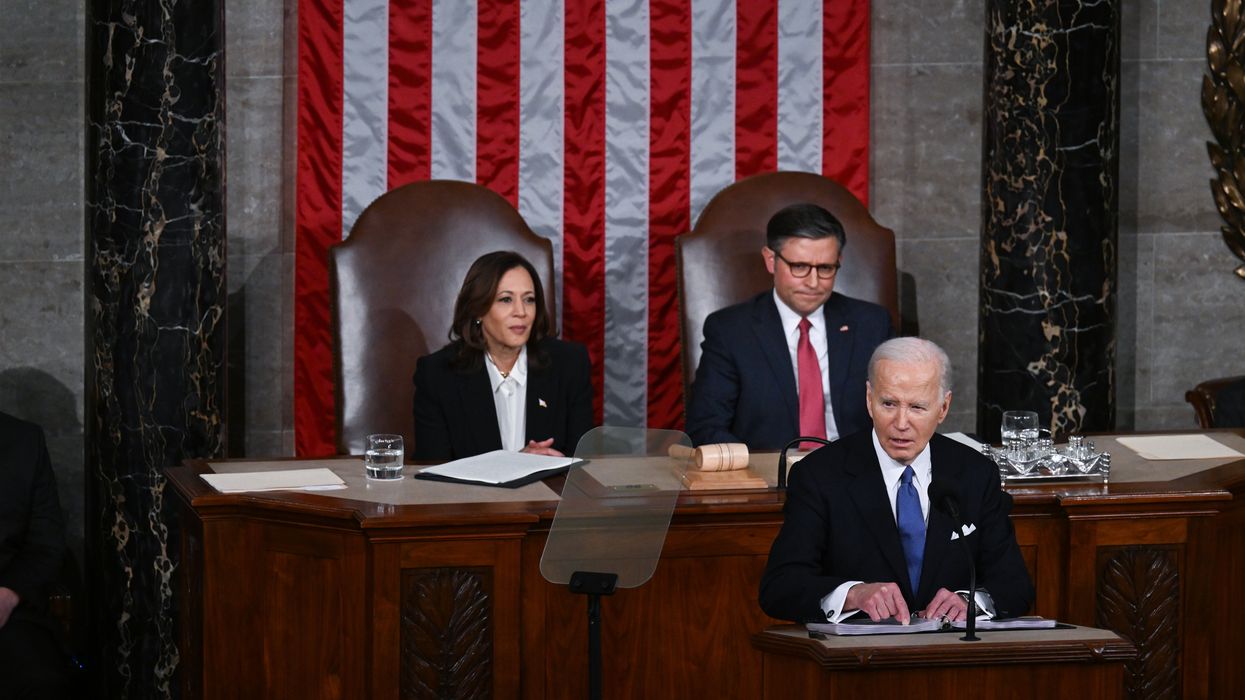Corbin is professor emeritus of marketing at the University of Northern Iowa.
Conventional wisdom, verified in conversations with your neighbors, friends and even strangers, holds that contemporary American politics is deeply polarized. Rachel Kleinfeld of the Carnegie Endowment for International Peace notes, “Some scholars claim that Americans are so polarized they are on the brink of civil war.”
But the Jan. 6, 2021, Capitol insurrection and ensuing lawsuits prove that a political civil war already exists. The headline of a Bloomberg op-ed political writer Francis Wilkinson, sounds a clarion bell: “ The Only US 'Civil War’ Will Be a War on Democracy.”
These alarms are nothing new. Research by the American Political Science Association notes that divisiveness started in the Senate in the mid-1950s and in the House of Representatives 20 years later. The presumptive 2024 presidential candidates are not liked by 60 percent to 70 percent of the voters. Both reference the Nov. 5 election as a democracy-versus-dictatorship decision point.
Gallup noted in January that 43 percent of voters consider themselves independent and the Republicans and Democrats equally divide the remaining population. Odds are the GOP lemmings will vote – regardless of research and legal findings – for Donald Trump and the Democratic Party conformists will vote for Joe Biden. The independents, who do their research, will determine who will lead America for the next four years.
Odds are also great that political parties will most likely tell their card-carrying members and foes from the “other side” a combination of disinformation, misinformation and propaganda – hoodwinking in orientation – and a smattering of truth.
Much of the time during political races we’re bombarded with massive and even conflicting information. No matter how hard we try, it’s difficult – if not impossible – to decipher truth from fiction. It’s during turbulent times like these where freethinking citizens seek voting guidance and defer to experts’ opinion.
Social science experts in political science and politically oriented research scholars participated in a late-2023 study, titled “The 2024 Presidential Greatness Project Expert Survey,” that ranked the presidents and gave some insight into experts’ thoughts on this election.
Here are the paramount research findings from specialists who study American presidents for a living that should give voters some compelling guidance:
- Biden was ranked as America’s 14th greatest president; Donald Trump came in dead last at No. 45. (FYI: The United States has had 46 presidents with Grover Cleveland serving as the 22nd and 24th; researchers count him just once.)
- Experts in presidential politics who identified themselves as conservative-oriented and Republican ranked Biden considerably higher than Trump for presidential effectiveness.
- Trump was identified – by far – as the most polarizing president, seven spots higher than Biden.
- Biden was acknowledged as the sixth most under-rated president while Trump came in eighth on the overrated list.
Research conducted in 2022 by the Siena College Research Institute – revered for their unbiased research and valid findings – corroborates the APSA’s findings. The institute ranked Biden as the 19th best president and Trump as – again – No. 45.
As the Los Angeles Times noted, should a Biden-Trump rematch occur, voters will be in that unique position of knowing how both candidates performed while they were in office to protect and defend America.
Between now and Nov. 5, be independent – like nearly half of the voters – and do your homework. Choose the candidate who you are convinced will demonstrate accepted norms of presidential leadership, keep America as the leader of the free world, preserve our constitutional rights, promote bipartisanship, respect laws of the land and the judicial system, keep our global trade alliances, support our military, stand up against CRINK (China, Russia, Iran and North Korea), and maintain America as a democracy versus falling into dictatorial-authoritarian control.
What would you be most proud of telling your family 10, 15 or 20 years from now? That you blindly followed the order of your preferred political party in the 2024 presidential election, didn’t vote or were a freethinking voter who seriously researched the candidates and determined America’s future?




















Trump & Hegseth gave Mark Kelly a huge 2028 gift